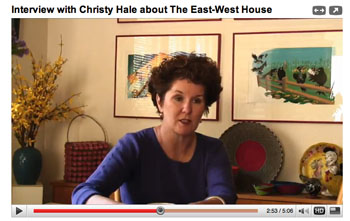It’s Halloween and the costumes are out! No zombies or vampires here, but we do have some serious masquerading to share when it comes to race.
To start us off we go to Germany, where a journalist is investigating the treatment of black people in Germany—by donning blackface and going undercover. Sure enough, he uncovers a lot of racism—but he does it without showcasing the experiences of actual black Germans.
Closer to home, this week’s America’s Next Top Model featured the competitors being dolled up as biracial: makeup, often darkening their skin; wigs; clothes that are a “fashion interpretation” of their cultures’ historical clothing. Dodai at Jezebel looks at it suspiciously, pointing out that “the problem, of course, is that race is not silver eyeshadow, a bubble skirt or couture gown. It’s not something you put on for a photo shoot to seem ‘edgy.’ Race is not trendy.” Still, she has mixed feelings: “Her intent was probably to showcase bi-racial beauty. Is this a case in which the action can be forgiven if the motive comes from a good place?” Thea at Racialicious, on the other hand, has no mixed feelings: she’s just angry.


